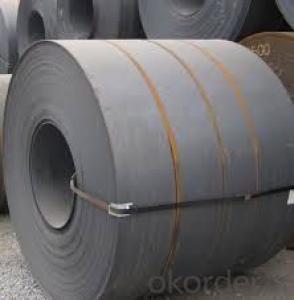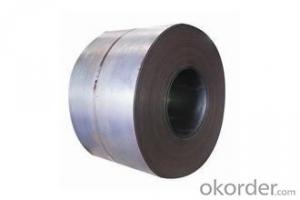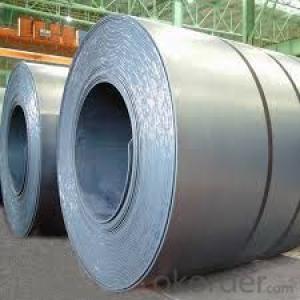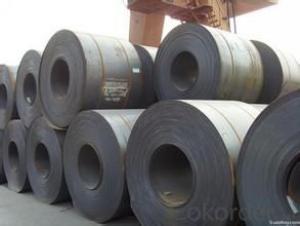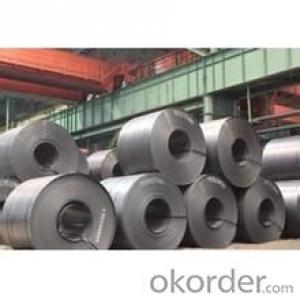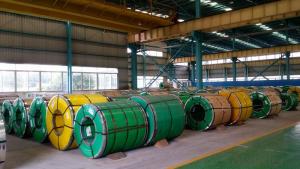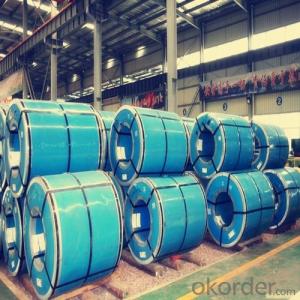Hot Rolled Steel Sheet / Coil - SAE J403
- Loading Port:
- Tianjin
- Payment Terms:
- TT OR LC
- Min Order Qty:
- 20 m.t.
- Supply Capability:
- 500000 m.t./month
OKorder Service Pledge
OKorder Financial Service
You Might Also Like
Product Description:
HOT-ROLLED STEEL COIL
Hot rolled low hardness, easy processing, good ductility.
Available specification:
| thickness | width(mm) | length(mm) | coil inside diameter(mm) | |
HOT ROLLED STEEL COIL | 1.5-25 | 600-2000 | 762 | |
HOT ROLLED STEEL STRIP | 1.5-20 | 30-720 | 762 | |
HOT ROLLED STEEL PLATE | 6-700 | 500-4500 | 4000-18000 | |
HOT ROLLED STEELSHEET | 1.2-25 | 50-2000 | 0-18000 |
we can supply all these inndustrial materials with reasonable price and high quality.
We can ensure that stable quality standards are maintained, strictly meeting both market requirements and customers’ expectations. Our products enjoy an excellent reputation and have been exported to Europe, South-America, the Middle-East, Southeast-Asia, Africa and Russia etc.. We sincerely hope to establish good and long-term business relationship with your esteemed company.
Our Hot-Rolled Steel Sheets and Coils are applied to a wide range of uses such as automobile, electrical appliance, machinery manufacturing, container manufacturing, shipbuilding, bridge, pipeline, and receive high acclaim from our customers for its excellent quality.
- Q: I'm getting new strings on my dad's old acoustic guitar so I can learn how to play it and I'm wondering if I should get nylon or steel strings. Are there any major differences between the two aside from the nylon strings being easier on your fingers? Like do the Nylon strings sound different?
- Steel strings sound much better as in brightness and tone. Nylon strings sound dull and don't hold tune well but are easier to press. You need to build calouses on your finger tips and using steel will do this, just take it easy until they form and stop when they start hurting moderately. When you put new strings on a guitar, it's very good to break them in by pulling on them from the neck upwards to stretch them out. If you don't, you will need to tune them much until they wear themselves in. Good luck and make some sweet music !!
- Q: i know that steel helmets werent meant to stop bullets, but i was wondering do they have an value whatsoever for stopping bullets, or is that just yet another thing that hollywood made up(like the omaha beach scene in saving private rian)
- Steel Pot Helmet
- Q: What are the common methods of testing the durability of steel coils?
- Steel coils undergo various testing methods to assess their durability, strength, and resistance to different stresses and conditions. Some commonly used techniques include: 1. Tensile testing: This method measures the maximum stress a coil can bear before breaking or deforming by subjecting it to tension. It provides valuable insights into the strength and ductility of steel coils. 2. Bend testing: This method evaluates the flexibility and resistance to deformation of steel coils by bending them to a specific angle and checking for cracks or fractures. It is essential for assessing coil durability in industries like construction or automotive. 3. Impact testing: This method determines the ability of steel coils to withstand sudden shocks or impacts. It involves striking the coil with a heavy object and measuring energy absorption or deformation. Impact testing helps identify coil toughness and resistance to sudden loading conditions. 4. Corrosion testing: Steel coils often face corrosive environments like moisture or chemicals. Corrosion testing examines the resistance of steel to degradation caused by these agents. Salt spray or electrochemical testing simulates and evaluates coil durability in corrosive conditions. 5. Fatigue testing: This method assesses the ability of steel coils to endure repeated loading and unloading cycles. It subjects the coil to cyclic stresses until failure. Fatigue testing is crucial in machinery or infrastructure applications where coils experience repetitive loading. 6. Hardness testing: This method gauges the resistance of steel coils to indentation or scratching, providing information about their strength and wear resistance. Common hardness tests include Brinell, Rockwell, and Vickers methods. 7. Non-destructive testing: In addition to the destructive methods mentioned above, non-destructive techniques like ultrasonic testing, magnetic particle inspection, or X-ray testing are used to detect internal defects or flaws without damaging the coil. By utilizing these testing methods, manufacturers and industries can ensure that steel coils meet the required durability standards and perform reliably in their intended applications.
- Q: I want to purchase steel for construction purpose, What aspects should I keep in mind while deciding that which company should I contact for this?
- It has been a few years since I was in the business but I have found that some steel from some countries can be quite different from the standards steel made in the US. For instance, one in 5 of my Indian made cast iron fittings would break when tightening it down. This never happened with US fittings. Even though I could take it back and get a refund, the increased price of US made materials was worth the savings in time and trouble. On a job in Columbia, the 3 inch angle iron came to us in 4 different sizes, all around three inches but not quite. This is not to say that all foreign metal is bad. One RD project I headed up we found a foreign bearing steel to be far superior to anything we could get in the states.
- Q: What are the common coil widths available for steel coils?
- The common coil widths available for steel coils vary depending on the specific application and industry requirements. However, there are several standard coil widths that are commonly available in the steel industry. These include: 1. 24 inches (approximately 610 mm): This is a common coil width used for various applications, including automotive manufacturing, construction, and general engineering. 2. 36 inches (approximately 914 mm): This wider coil width is often used in the construction industry for roofing and siding materials. 3. 48 inches (approximately 1219 mm): This wider coil width is commonly used in manufacturing processes where larger steel sheets are required, such as in the production of appliances, HVAC systems, or industrial machinery. 4. 60 inches (approximately 1524 mm): This wider coil width is typically used for specialized applications in industries such as automotive manufacturing, aerospace, or shipbuilding. It is important to note that while these are some of the more common coil widths, steel coils can be produced in custom widths to meet specific customer requirements. Additionally, the availability of coil widths may vary depending on the steel mill or supplier.
- Q: What are the different coating options for steel coils?
- There are several different coating options for steel coils, including galvanized coatings, zinc-aluminum coatings, organic coatings, and metallic coatings. Galvanized coatings involve applying a layer of zinc to the surface of the steel to provide corrosion protection. Zinc-aluminum coatings are a combination of zinc and aluminum, offering enhanced corrosion resistance and heat reflectivity. Organic coatings, such as paints or powder coatings, provide protection against corrosion as well as aesthetic appeal. Metallic coatings, like tin or chromium, offer superior corrosion resistance and are commonly used in specialized applications.
- Q: i have noticed in guns, and artillery the shell casings are always made out of brass. brass is expensive, weaker and dosnt look as good as steel. so why use it for casings? i am aware some of the case must be deformed. but just a small brass percussion cap could be used just for that and steel for the rest. whats going on?
- Basically all the others are right, except Skeptical who never answered your question. Just thru out an insult....what was that you said about growing up?...hmmmmm Also Skeptical...take a look at modern day guns (pistols and rifles), holsters, knives, even bullet, packaging and boxes for the above. You don't think looks play a role in design? Aesthetics and whether something is pleasing to the eye ALWAYS plays a role in marketing. To answer the question though, it allows the shell expansion to seal the chamber, it's lighter, and also much easier and prolongs the life of the extractor.
- Q: Can steel coils be coated with impact-resistant materials?
- Yes, steel coils can be coated with impact-resistant materials. The coating process involves applying a layer of impact-resistant material onto the surface of the steel coils to enhance their durability and protection against impacts or damages. This coating can provide additional strength and resistance, making the coils suitable for various applications requiring impact resistance.
- Q: How are steel coils used in the automotive stamping process?
- Steel coils are essential for the automotive stamping process, serving as a crucial element. These coils are large rolls of steel, which are unwound and fed into stamping machines. They are typically made of high-quality steel and come in different thicknesses and widths to meet specific requirements for automotive parts. In the stamping process, the steel coils pass through a series of dies and presses that shape and form the metal into desired automotive components. To ensure a smooth and consistent feed into the stamping machine, the coils are unwound and straightened to remove any bends or twists. The stamping machine applies hydraulic or mechanical force to press the steel coil against a specially designed mold called a die. The die, often made of hardened steel, can withstand the pressure and provide accurate and repeatable results. At high speed, the steel coil is fed into the stamping machine, and as it passes through the die, the metal takes shape as various automotive parts such as body panels, doors, hoods, fenders, and structural components. The stamping process offers high precision and consistency, meeting required specifications and tolerances. After forming, the metal may undergo additional processes like trimming, piercing, or bending to achieve the final shape. These processes can be carried out in subsequent stamping stations or by using progressive dies that combine multiple operations into a single pass. Overall, steel coils are vital in the automotive stamping process, providing the necessary raw material to produce various components. The use of steel ensures strength, durability, and safety of automotive parts while maintaining cost-effectiveness and mass production capabilities.
- Q: How are steel coils used in the manufacturing of bridges?
- Steel coils are used in the manufacturing of bridges as they provide the raw material for creating structural components such as beams, girders, and columns. These coils are processed and shaped into the required sections, which are then assembled and welded together to form the bridge's framework. The strength and durability of steel make it an ideal material for constructing bridges that can withstand heavy loads and harsh environmental conditions.
Send your message to us
Hot Rolled Steel Sheet / Coil - SAE J403
- Loading Port:
- Tianjin
- Payment Terms:
- TT OR LC
- Min Order Qty:
- 20 m.t.
- Supply Capability:
- 500000 m.t./month
OKorder Service Pledge
OKorder Financial Service
Similar products
Hot products
Hot Searches
Related keywords
